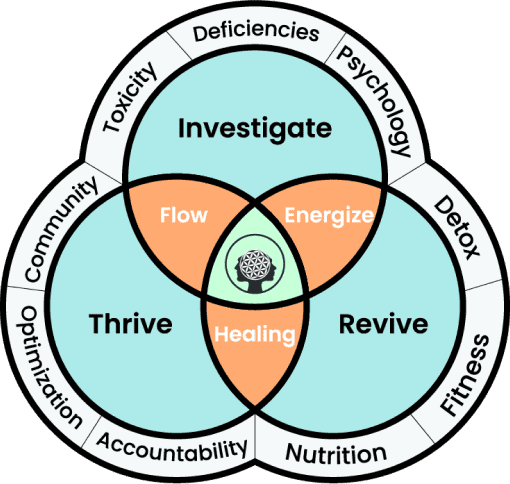Gratitude is a powerful emotion that can transform our lives and bring joy, peace, and contentment. It simply appreciates what we have and acknowledges the good in our lives. However, in a world that often prioritizes material success and achievement, it can be difficult to cultivate an attitude of gratitude.
This blog will explore the importance of gratitude, how to develop an attitude of gratitude, and the numerous benefits that come with it. From understanding the science behind gratitude to overcoming obstacles to cultivating a gratitude mindset, it aims to provide a comprehensive guide to help you lead a more fulfilling life.
So, whether you’re looking to improve your mental health, strengthen your relationships, or simply bring more positivity into your life, read on to learn how an attitude of gratitude can help you achieve your goals.
What is the attitude of gratitude?
An attitude of gratitude refers to a mindset or a way of viewing life that values and appreciates the positive aspects and blessings. It involves being thankful for the big and small things, recognizing the good in life, and focusing on what one has rather than what one lacks. Cultivating gratitude can lead to increased overall well-being and a more fulfilling life.

The Science Behind Gratitude and Happiness
The science behind gratitude and happiness is rooted in the concept that focusing on the positive aspects of life and being thankful for them can lead to increased well-being and happiness. Research has shown that expressing gratitude has several benefits for both mental and physical health.
Incorporating Gratitude into Your Life
So, how can we cultivate an attitude of gratitude and reap its many benefits? Here are a few simple steps to get started:
Keep a Gratitude Journal
Take the time to jot down three things you are thankful for daily. This straightforward exercise can help steer your attention toward the good parts of your life.
Write a Gratitude Letter
Gratitude letters are letters of appreciation written to express thanks and show appreciation to someone who has positively impacted your life, such as a family member, friend, teacher, or mentor.
Express Your Gratitude
Express your appreciation to others through words, actions, or gifts. This can strengthen relationships and promote feelings of happiness.
Practice Mindfulness
Take time each day to focus on the present moment and acknowledge the good in your life.
Reflect on the Good in Your Life
Take time each day to reflect on the good in your life and give thanks for it.
Focus on the Positive
Make a conscious effort to focus on the positive aspects of your life rather than the negative.
Practice Gratitude Meditation
Gratitude meditation is a mindfulness practice that involves focusing one’s attention on feelings of gratitude and appreciation. It typically involves taking a few minutes each day to reflect on the things one is thankful for and to cultivate a sense of gratitude in one’s life.
This can involve visualizing positive experiences, repeating affirmations of gratitude, or simply focusing on the present moment and feeling thankful for all the good things in one’s life.

Reaping the Rewards: Benefits of Cultivating an Attitude of Gratitude
Cultivating gratitude has numerous benefits that can positively impact our physical, emotional, and psychological well-being. Here are some of the many rewards of appreciation:
-
Increased Happiness
By focusing on what we have rather than what we lack, gratitude helps individuals cultivate a more positive outlook on life and increases happiness.
-
Improved Mood
Expressing gratitude has increased positive emotions, such as joy, contentment, and happiness, while reducing negative emotions, like anger, frustration, and stress.
-
Better Sleep
Gratitude has been shown to improve sleep quality and help individuals fall asleep faster. It can also reduce symptoms of insomnia and improve overall sleep satisfaction.
-
Improved Relationships
Gratitude can improve relationships by promoting feelings of appreciation and reducing feelings of negativity. In romantic relationships, gratitude can enhance satisfaction between partners. A study from 2010 found that partners who showed gratitude towards each other experienced increased relationship satisfaction and happier feelings the next day.
-
Reduced Stress
Gratitude has been shown to reduce cortisol, the stress hormone, and lower overall stress levels. It can also help individuals manage difficult situations and cope with stress more effectively.
-
Better Physical Health
Expressing gratitude has been linked to lower rates of heart disease, lower blood pressure, improved immune function, and reduced symptoms of physical illness.
-
Increased Resilience
By focusing on the positive aspects of life, gratitude can help individuals develop greater resilience and bounce back from difficult situations more quickly and effectively.
-
Enhanced Brain Function
Brain imaging studies have shown that practicing gratitude activates brain regions associated with pleasure, compassion, and moral reasoning while reducing activity in the areas associated with stress and negative emotions.
How do we overcome obstacles to gratitude?
Overcoming obstacles to gratitude can be a challenge, but with the proper techniques and mindset, it’s possible to cultivate a more grateful outlook on life. Here are some tips to help overcome common obstacles:
Reframing Negative Thoughts
It can be easy to focus on what’s wrong in our lives and ignore the good. Reframing negative thoughts to focus on what is going well can help us develop a more grateful outlook.
Practicing Mindfulness
By becoming more present and aware of our thoughts and emotions, we can learn to appreciate the little things in life and cultivate gratitude.
Surround Yourself with Positive People
Being around people with a positive outlook and gratitude can also help us adopt this attitude.
Keeping a Gratitude Journal
Writing down things we are thankful for daily can help us focus on the positive and foster a grateful mindset.
Challenging negative beliefs
Sometimes, negative beliefs can hold us back from feeling grateful. Challenging these beliefs and replacing them with positive affirmations can help us overcome this obstacle.
Seeking Support
Talking to a trusted friend, family member, or therapist can help us work through any obstacles to gratitude and develop a more positive outlook on life.
Giving Back
Practicing acts of kindness and generosity can help us shift our focus from what we lack to what we have and feel more grateful for the blessings in our lives.

Embrace the Power of Gratitude for a Happier Life
An attitude of gratitude has numerous benefits for our overall happiness and well-being. By focusing on what we have rather than what we lack, gratitude helps individuals cultivate a more positive outlook on life, leading to increased feelings of happiness, better relationships, improved physical health, and enhanced resilience.
Incorporating gratitude into your life is simple and can be done through practices like keeping a gratitude journal, expressing gratitude to others, practicing mindfulness, and focusing on the positive. So, embrace the power of gratitude and experience its many benefits for a happier, more fulfilling life.











Leave a Reply
You must be logged in to post a comment.